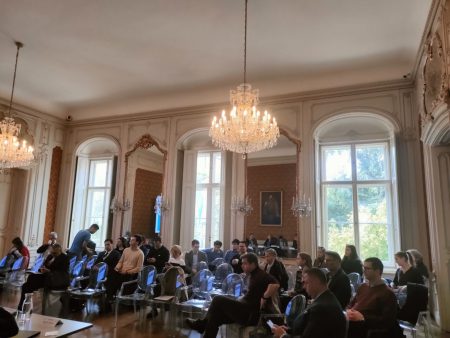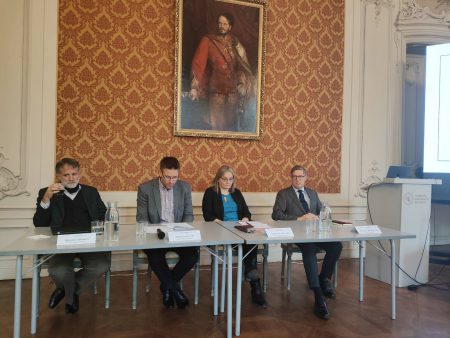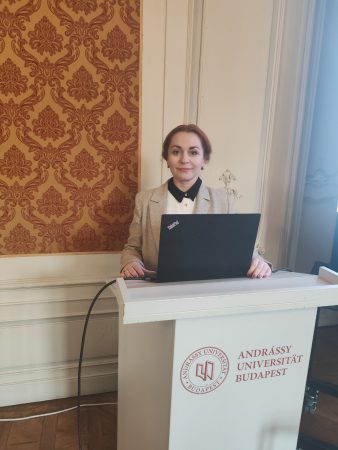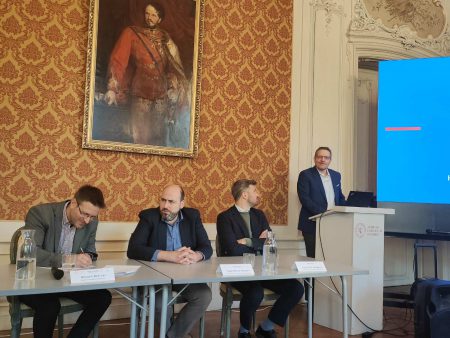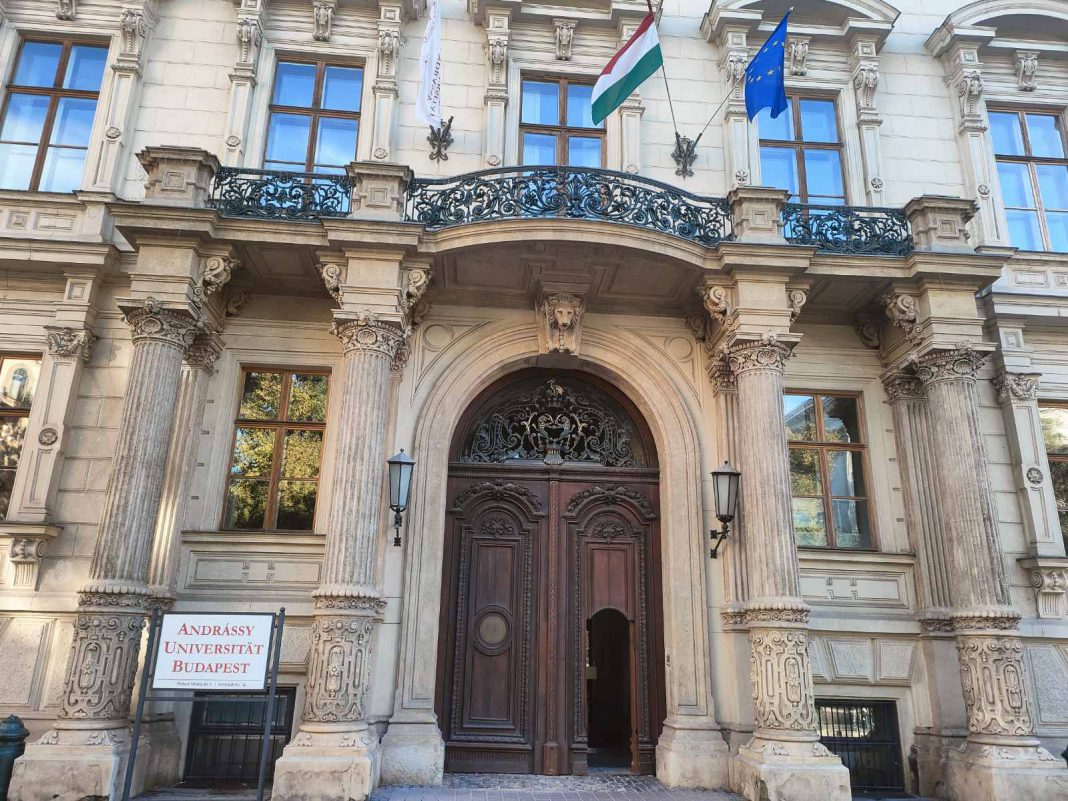International conference: “Fifty Shades of Neutrality -A Dead End or a Workable Strategy for Small States in Europe?”, Andrássy University, Budapest, Hungary.
Natalia Stercul, Executive Director of the Foreign Policy Association of Moldova (APE), along with such speakers as Christoph Schwarz, Austrian Institute for European and Security Policy, Jean-Marc Rickli, Geneva Centre for Security Policy; Douglas Brommesson, Linnaeus University; Mariano Barbato, Andrássy University; Christina Griessler, Andrássy University; Iuliia Osmolovska, Globsec Ukraine, took part in the International Conference: “Fifty Shades of Neutrality – A Dead End or a Workable Strategy for Small States in Europe?”, organized on October 6, 2025 by the Andrássy University Budapest, Hungary.
From the war in Ukraine to the rise of China, the world order we came to know over the past decades is undoubtedly in a process of transformation. This reorientation also affected Europe’s security architecture, which, bringing together the former Eastern and Western blocs, converged around the ideas of inviolability of borders and peaceful conflict resolution. Overall, small states were clear beneficiaries of the security architecture which coalesced after 1990. Yet Russia’s wars against Georgia and, more recently, its aggressions in 2014 and 2022 against Ukraine, questioned basic tenets of this architecture. In parallel, with the weakening of the United States of America, China emerged both as an economic partner and investor as well as strategic competitor. How can small states in Europe respond to these new security challenges?
Traditionally, neutrality has been one option for small states to secure their territorial integrity and sovereignty. Inside the European Union, Austria, Malta and Ireland still maintain their neutrality, yet Finland and Sweden recently opted to join NATO. Outside the EU, Switzerland, Moldova and Serbia are neutral countries. Recently, the concept has been very much in the spotlight due to suggestions that Ukraine also might (or will have to?) choose neutrality as part of a potential peace settlement with Russia.
What is sometimes lost in all this conversation about neutrality is the multi-faceted and variegated nature of the concept. Each country has a slightly different understanding of the neutrality, probably because the historical genesis and the subsequent pathways of the various concepts of neutralities have been different for each country. Thus, neutrality comes in many shades and varieties – and therefore offers many lessons learned.
The discussions revolved along the following thematic areas: What can we learn from countries that have chosen neutrality? How does it work, what are the advantages and challenges? How beneficial is neutrality, politically and economically? How popular is it with their citizens? What can Ukraine – or, for that matter, other countries in Eastern Europe and the Balkans – learn from the experience of the European neutrals? Can it still be a useful strategy in an ever more volatile European security environment? The event brings together eminent experts from Europe to share their thoughts and discuss the viability of the concept in a rapidly changing European security landscape.
